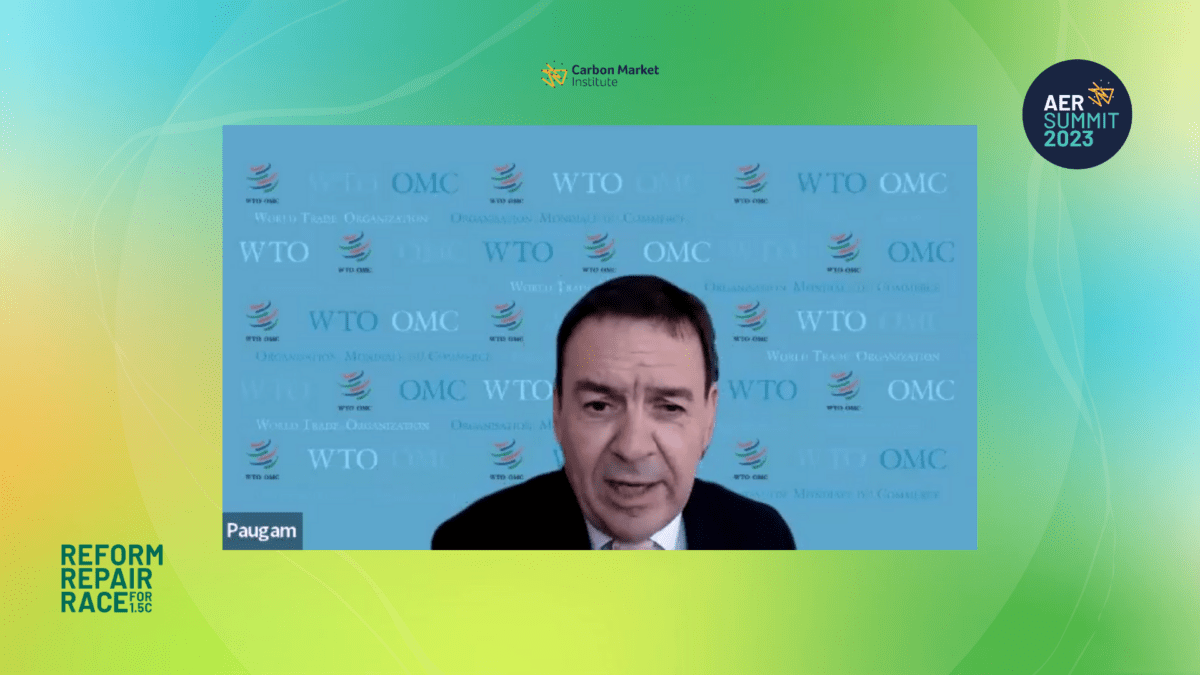Day 2 of the Carbon Market Institute’s 9th annual Australasian Emissions Reduction Summit commenced with an address from the Minister for Climate Change and Energy, Chris Bowen, outlining the Labor government’s first climate budget and confirming its election commitments under the Powering Australia Plan.
CMI welcomed the Minister’s announcements as a significant step-up from previous budgets, including its support for the rebranded Powering the Regions Fund (PRF), however noted key decisions still to be made in coming months that will provide greater clarity on the mix of public and private sector investment required to accelerate Australia’s climate ambition.
“CMI welcomes the Albanese Government’s first budget as a solid first step in guiding investment and delivering on its election commitments,” said John Connor, CMI CEO.
“We have long-called for a crediting scheme that better leverages private sector demand, and we welcome the government’s confirmation that Australian Carbon Credit Units (ACCUs) will continue to be funded through the PRF while this transition from a taxpayer-funded crediting scheme takes place.”
“However, with as much as much as $2 billion in dividends to come from ERF exit payments. we look forward to more details on where remaining uncommitted funds will be allocated.”
“All eyes will also now be on key reforms to the Safeguard Mechanism and the outcome of the ACCU review, so we expect to see a more complete picture once next May’s budget arrives,”
CMI noted and welcomed the following announcements in particular:
- $1.9 billion from the former Emissions Reduction Fund/Climate Solutions Fund to formally establish the Powering Regions Fund, which will continue to develop supply of ACCUs as well as supporting Australian industry to decarbonise, developing new clean energy industries, and helping build the new energy workforce.
- $20.3 million to establish Carbon Farming Outreach Program, empowering Australian farmers and land managers to participate in carbon markets.
- $15.9 million to engage with and support First Nations communities to prepare for the impacts of climate change, including funding to help establish a Torres Strait Climate Centre of Excellence.
- $204 million additional funding for the Great Barrier Reef, including funding to support targeted blue carbon ecosystem restoration projects.
- $20 billion for Rewiring the Nation, delivering low-cost finance to upgrade, expand and modernise Australia’s electricity grid.
View the media kit (Press releases, Images, video and transcripts)
Highlighted quotes from this morning’s sessions:
Hon. Chris Bowen, Minister for Climate Change and Energy:
“The budget makes a strong and critical down payment on Australia’s climate and energy future, the first in almost a decade, by investing in projects that set us up to become a renewable energy superpower, paving the way to accelerate economy-wide decarbonization and putting downward pressure on energy prices for businesses and households, as well as creating jobs.”
“I’m pleased with all this progress, but I’m far from satisfied. I’m not satisfied because we have so much more to do and so little time in which to do it. It took its decades to get here, but the past can now be broken down to months. 2030 is 86 months away. Australia has 86 months to move its electricity system to 82% renewables and meet its economy-wide targets. The world has 86 months to take actions that can hold our temperature rise to as close as possible to 1.5 degrees.”
“This is a shared mission, not a mission of government, not even a missions of governments or of households or business, but a mission for our entire country.”
Emma Herd, Partner, Climate Change & Sustainability, EY:
“Finally, we’re having a conversation about how climate change is integral to the Australian economy.”
“We shouldn’t ignore the pivot that’s occurred in the last 24 hours on Australia’s stance on climate change.”
“It definitely feels like there’s an attempt here to move away from Government being the main driver of the market, to being one that is more market-driven.”
Richard Yetsenga, Chief Economist, ANZ:
“The budget is a tool of macro balance. The financing side of transition gets plenty of attention, but the thing that occupies my mind is the demand on real resources that the transition will take. Raw materials, people, expertise, infrastructure.”
“The US highway system cost about 15% of one year’s GDP. Enormous when you think about the size of the US economy. The transition will be about everyone trying to do the US highway system at the same time.”
Jillian Button, Partner, Allens:
“We are on the brink of moving from a soft law environment to a hard law environment, where there’s less optionality, more transparency and more consistency.”
“The temptation for business is to take a wait and see approach [while these changes occur], but my suggestion is for organisations to think sooner rather than later about what the ‘no regrets’ actions are that need to be taken now.”
About the Carbon Market Institute
The Carbon Market Institute (CMI) is an independent industry body, championing business best practice towards a negative emissions, nature positive world. Its nearly 150 members include primary producers, carbon project developers, Indigenous corporations, legal, technology and advisory services, insurers, banks, investors, corporate entities and emission intensive industries developing decarbonisation and offset strategies. The positions put forward constitute CMI’s independent view and do not purport to represent any CMI individual, member company, or industry sector. CMI’s latest Advocacy Policy Positions Statement can be viewed here.
About the AER Summit
The Carbon Market Institute’s 9th Australasian Emissions Reduction Summit is Australia’s premier business and climate action event for 2022. For nearly a decade, the Summit has been an important forum for discussion on climate and regional realities, as well as the investment required for a ‘just’ and inclusive transition to a net zero economy. It has also been a key platform for CMI’s mission to help business manage risks and capitalise on opportunities in the transition.
This year’s event will focus on urgency, integrity and ambition and feature more than 100 national and international speakers. It comes at another crucial juncture as the new Labor Government oversees significant climate policy reform, hands down its first federal budget and as carbon market growth and corporate decarbonisation accelerates in the US, Asia and Europe.
For further information, contact Thomas Hann on 0408880536 or thomas.hann@carbonmarketinstitute.org



